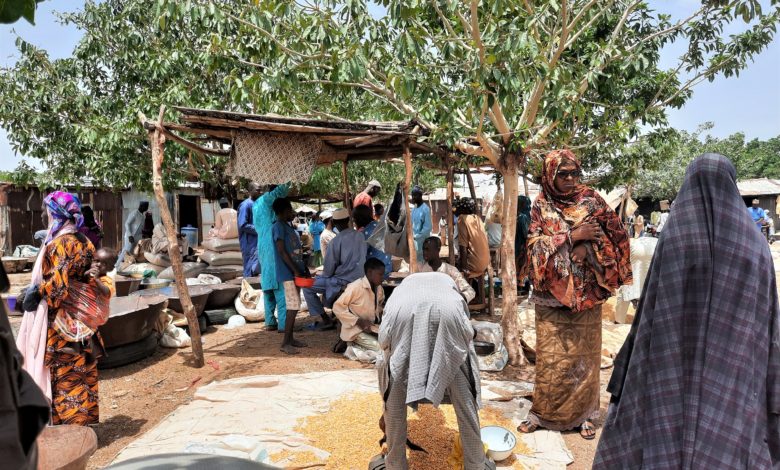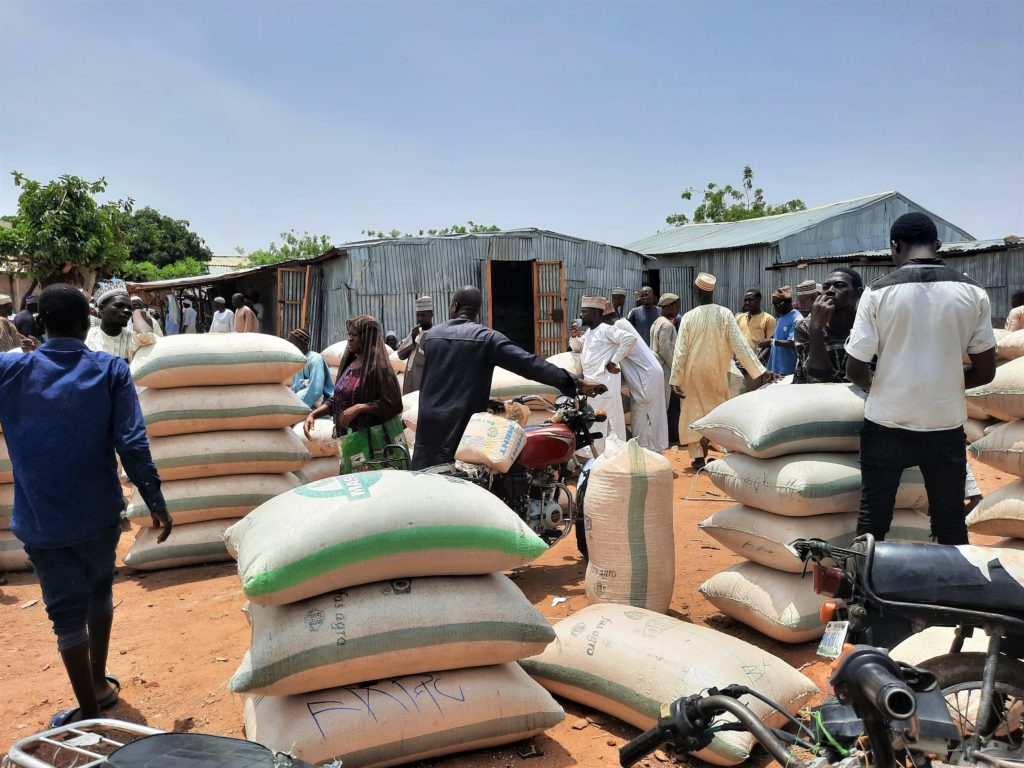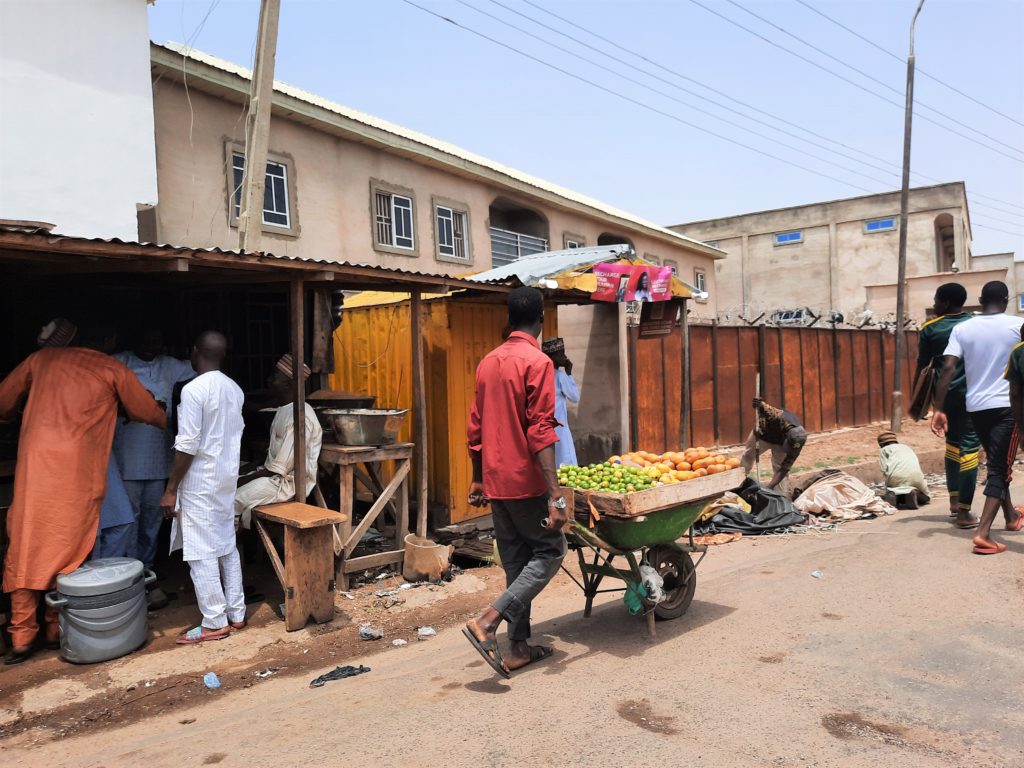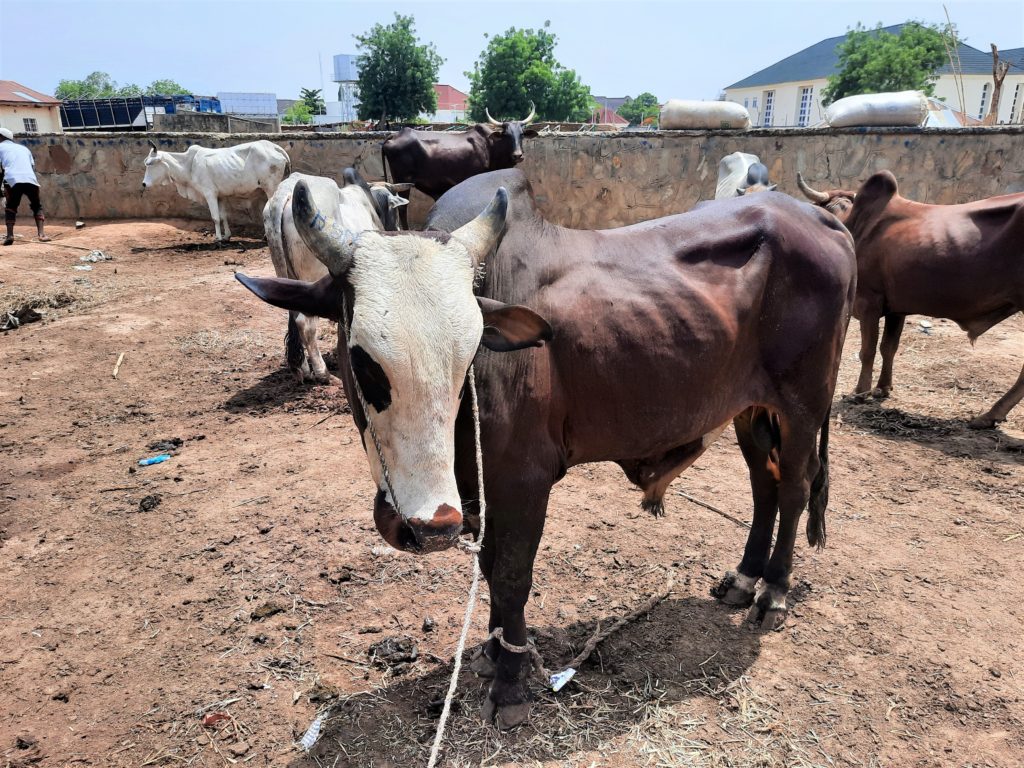Food Prices Are Shooting Up In Northwest Nigeria, And There’s One Prime Suspect
More farmers are downing tools, fearing they may become victims of terror attacks. As a result, food items are scarcer, driving prices through the roof — beyond the reach of the poor.

When Esther Maiwada moved to Gusau, capital of the northwestern state of Zamfara, nine years ago, one measure of maize was sold for between ₦100 and ₦150. Today, you cannot buy the same measure unless you have at least ₦700.
Money is fast losing value. Again, what Esther needed, in the recent past, to prepare meals for her family that will last a week is no longer enough for two days. With five children to take care of, she is concerned.
In states across Northwest and North-central Nigeria, terror groups, locally described as ‘bandits,’ have been killing, kidnapping, looting, raping, maiming, and extorting people for years.
The problem is worsened by widespread poverty, poor governance, illiteracy, inadequate policing, and the smuggling of guns. Between 2011 and mid-2020, violence in the Northwest had killed over 8,000 people and displaced over 200,000 others. The situation has since degenerated, giving rise to an alarming humanitarian crisis.
Steep inflation and spreading food insecurity are also among the fallouts. The prices of consumer goods have increased constantly in the past few years. According to the latest National Bureau of Statistics report, some of the states worst hit by food inflation are Benue, Kebbi, Gombe, Nasarawa, Plateau, Sokoto, and Zamfara.

Yahaya Sudan, one of the leaders at the cereal section of Gusau Central Market, believes worsening insecurity has contributed significantly to food scarcity and rising prices. Many remote areas from which foodstuffs used to be bought and transported to the city are no longer accessible. The inability of farm owners to work on their land is a factor too.
“Zamfara is one of the states in Nigeria that God has blessed with arable land. So, if we were living in peace, and everyone was able to go inside the bush to farm, foodstuffs would not be as expensive as they are now,” he says.
“Because you can find a farmer who can go months in the bush without coming into town, just working on his farm. And because of the lack of security, he has fled that bush, and he’s not able to put in the work on the farm. So, you see, it will affect the abundance of foodstuff.”
Muhammadu, a cereal retailer at the market who hails from Bungudu LGA, supports this line of thought with a hypothesis. If many people farm and harvest enough to sustain themselves while selling the rest, food will be affordable. Instead, what is happening is that people are not allowed to farm, or they farm but are prevented from harvesting their produce.
“We haven’t had peace here in over ten years. Before, you would see 100 people going to the farm to harvest and bring back food to sell. To speak in all honesty, you won’t even find 50 people to do that now,” he says.
In certain communities, such as Bangaren ‘Yan Katsina, Gidan Sama, Tungan Malamai, Tungan Haki, and places in Zurmi, terrorists have prohibited the locals from farming.
“There’s a man I know in Tungan Haki who normally harvests over a thousand bags, but he hasn’t been able to farm a single bag now. What really brings balance is when everyone is able to farm. That way, a lot of people will bring their harvest to the market so that way even if one person’s price is too expensive, the other will reduce the price to sell his own market.”

State governments’ reaction to the security situation, such as shutting down telecommunications services and imposing restrictions on movements, have further compounded the problem.
Other factors blamed for the hikes include alleged hoarding by traders and the ban of food imports through the land borders.
Meanwhile, skyrocketing prices is not a problem only those trading foodstuff have had to grapple with. Livestock has become unaffordable too due to the activities of organised crime and terror groups.
“It’s well known that all this banditry currently going on everywhere started with cattle rustling. That means it started with us. And it’s still going on here with us,” says Nasiru Abubakar, a trader at the Old Kara Cow Market in Gusau.
“Whenever we’re going to the market, we have no peace of mind because we’re moving with our property. And these bandits, when they ambush you on the road, they don’t spare man or cattle.”

The related problem is that, due to the prevalence of rustling, cows that traders like Nasiru have legitimately bought can be claimed by herders who say they were stolen from them. Security personnel also use the situation as a pretext to probe and extort money from traders.
“On one end, we have to deal with the bandits, and on the other end, we have to deal with security personnel whose job is to protect us,” says Nasiru. “Instead, they make us question if the whole business is even worth it.”
According to Nasiru, a cow that, only eight months ago, was priced at ₦100,000 can now hardly be bought with ₦150,000, making it difficult for dealers to recoup their investments. Over the course of five years, the prices have increased by as much as 500 per cent.
“It’s all a part of the security challenge. The herders in the bush are not living peacefully because they’re constantly getting attacked. They migrate and go somewhere else. And whatever happens to them will also affect us because we can’t live without them.”
The Nigerian government has said it is not resting on its oars. Agriculture minister Dr Mohammed Abubakar recently assured that they were doing all they could to lower food prices by providing stimulus to farmers.
“May God almighty make us win, and may he bless the market — in every aspect, not just cattle rearing,” Nasiru prays back in Gusau, sounding more solemn as he lowers his voice. “If there’s no peace in other parts and you’re enjoying the peace on your end, it’ll eventually reach you one day. That’s the truth.”
Support Our Journalism
There are millions of ordinary people affected by conflict in Africa whose stories are missing in the mainstream media. HumAngle is determined to tell those challenging and under-reported stories, hoping that the people impacted by these conflicts will find the safety and security they deserve.
To ensure that we continue to provide public service coverage, we have a small favour to ask you. We want you to be part of our journalistic endeavour by contributing a token to us.
Your donation will further promote a robust, free, and independent media.
Donate HereStay Closer To The Stories That Matter




